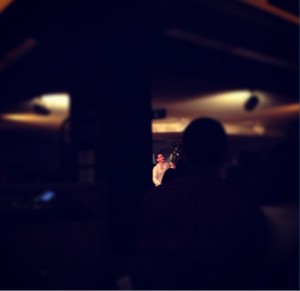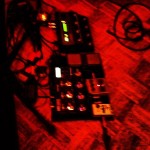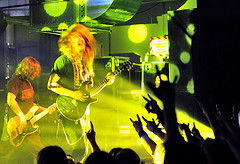Mar 21, 2013 4
Two Shows: Kurt Rosenwinkel and Chris Potter, Regattabar, March 2013
 It’s been a week since I saw Chris Potter play with his quartet (David Virelles (p), Larry Grenadier (b), Nate Smith (d)) and two weeks since I saw Kurt Rosenwinkel with his (Aaron Parks (p), Eric Revis (b), Justin Faulkner (d)) and I’ve been wrestling with how best to describe what made these shows so different and, not to put too fine a point on it, why the Chris Potter show was so much better.
It’s been a week since I saw Chris Potter play with his quartet (David Virelles (p), Larry Grenadier (b), Nate Smith (d)) and two weeks since I saw Kurt Rosenwinkel with his (Aaron Parks (p), Eric Revis (b), Justin Faulkner (d)) and I’ve been wrestling with how best to describe what made these shows so different and, not to put too fine a point on it, why the Chris Potter show was so much better.
Top of Their Game
The most obvious reason, I guess, is that Potter’s band is just better. Larry Grenadier (picture above) is a “best of his generation” bass player, David Virelles is as rhythmically inventive and harmonically adventurous as they come, and Nate Smith plays drums in a way that is commandingly funky as well as surprisingly understated (he played a solo that built so slowly and massively that he was halfway into it before you knew what was happening).
To top it all off, of course, is Chris Potter himself. Combining a pop sensibility (that reminds me of Stan Getz, though Potter sounds nothing like him) with a protean mastery of the instrument, Potter can be at turns lyrical and wild, brainy and melodic. And whether it’s a question of his acumen as a leader or the collective intelligence of the ensemble, the group moved effortlessly with him and around him into realms that seemed both uncharted and sublimely familiar, as if we had been transported to a 80s era Brecker Brothers New York funk throw-down infused with an unheard of at the time nuanced modernism.
Long story short, Potter’s set was energetic, energizing and everything I want when I go see live jazz: amazing musicians playing astonishing, improvised music.

